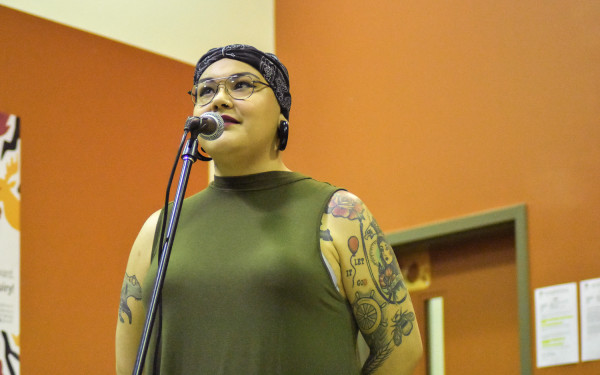Editorial: Missing and Murdered Vigil Needs to be Met With a Real Response From Canada
Sunday marked the 10th anniversary of the March and Vigil for Missing and Murdered Indigenous Women, and the Canadian government has still not addressed this problem with a nationwide, federal inquiry.
With ever-rising numbers, it’s a problem that is always at the forefront every October 4. The annual event is an important reminder, but it’s an issue that falls on the wayside throughout the course of the year. The Canadian government ignores it as well as a majority of its population.
For the last 10 years, marches have been happening all over the country for a federal inquiry into the deaths of more than 1,200 indigenous women. So far the demands have been met with an almost deafening silence. While promises have been made to have police investigations it does not address the severity of the issue.
We live in a world where we talk about appropriate responses to crimes daily, but when crimes actually need a significant response, there’s almost none. According to the most recent RCMP report on the issue, there has been a 9 per cent decrease in unsolved cases—from 225 to 204. It’s a start, but it’s still not good enough. There are still at least 204 indigenous women whose stories are yet to be concluded, and we will not forget them.
Some activists estimate that since 1980, the number of disappearances and murders are around the 3,000 mark. This means that thousands of Aboriginal women are not even traceable by any authority at this point. It’s unacceptable.
A report from the Inter-American Commission on Human Rights, Missing and Murdered Indigenous Women in British Columbia, offers many recommendations to the Canadian government.
In the report, it references Section 88 of the Indian Act, which states that the government “allows for substantial provincial legislative control over indigenous peoples. This means that both the federal and provincial governments are responsible for the legal status and conditions of indigenous women and girls and their communities.”
The federal and provincial governments have ignored their basic responsibilities for the past 35 years.
This also falls on the police investigations as well. In another report titled Forsaken, published in 2012, found that B.C. police failed in many of their duties including time delays in reporting, lack of urgency, inadequate interviewing, failure to poster or use media to advertise a missing person, etc.
The police in British Columbia even failed to convict famous serial killer Robert Pickton. Arrested and charged in 1997 for assault and attempted murder, he was later released, and further disappearances occurred.
Finally Pickton was caught again in 2002 and charged with 27 accounts of first-degree murder, many of which were committed against indigenous women.
How can anyone trust any future or past inquiries when the police have also failed in their duties to sufficiently investigate crimes? A national inquiry is urgent since police investigations have proven insufficient.
We at The Link are calling out the government and its police forces for general incompetence and lack of empathy for the descendants of the First Nations people this land was stolen from.
For the average citizen, missing and murdered Aboriginal women, as well as systemic issues First Nations experience daily, must be at the forefront of public discourse beyond this significant annual event.




1_600_375_90_s_c1.jpg)
_(1)_600_375_90_s_c1.jpg)

_600_375_90_s_c1.jpg)